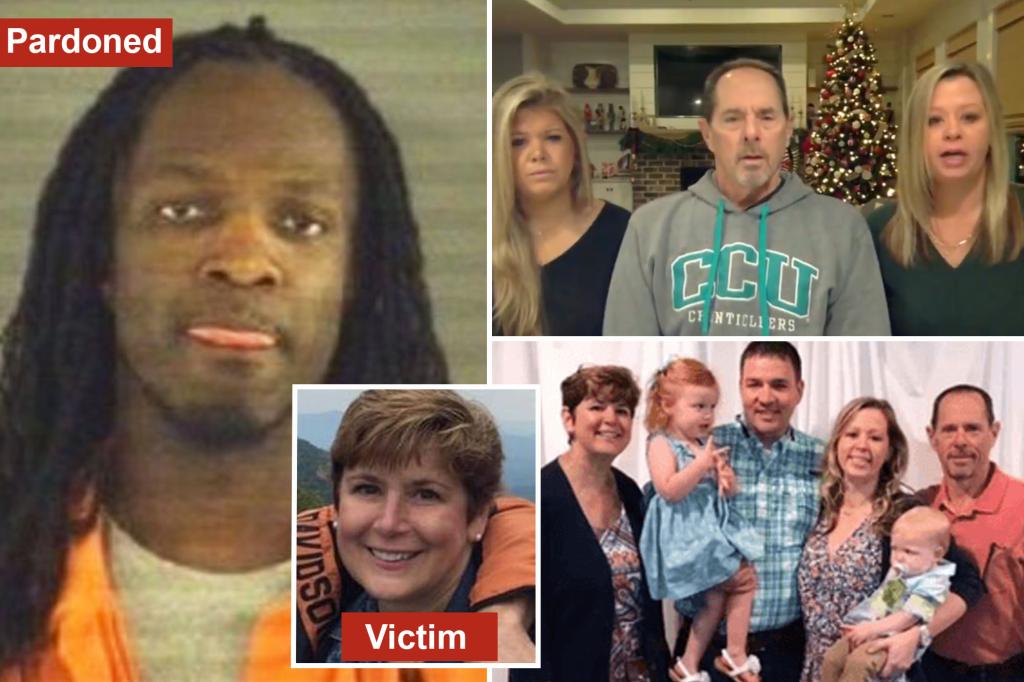The Christmas season of 2023 was marred by heartbreak and outrage for the family of Donna Major, a South Carolina bank teller murdered during a 2017 robbery. Their grief was compounded by President Biden’s decision to commute the death sentence of her killer, Brandon Council, to life imprisonment without parole. This act of clemency, part of a broader commutation of 37 federal death row inmates’ sentences, ignited a firestorm of controversy, particularly from Major’s family who felt disregarded and betrayed by the justice system and the President’s decision.
The family’s anguish stems from the brutal and senseless nature of Major’s death. Council, a career criminal, entered the CresCom Bank in Conway, South Carolina, engaged Major in brief conversation, then abruptly drew a gun and shot her multiple times. He then proceeded to shoot and kill another teller, Kathryn Skeen. The surveillance footage of the incident, a stark reminder of their loved one’s final moments, continues to haunt Major’s family. The sudden and unexpected act of violence, devoid of any remorse or justification, left them grappling with an immense sense of loss and injustice.
President Biden justified the commutations by citing his moral opposition to the death penalty and his belief that it does not deter crime. He expressed sympathy for the victims’ families while maintaining that his conscience dictated this course of action. This explanation, however, offered little solace to Major’s family who felt their voices were unheard and their suffering unacknowledged in the decision-making process. The commutation felt like a betrayal, a disregard for the justice they had sought for their slain mother and wife.
The family’s frustration is further amplified by the perceived lack of communication and empathy from the administration. While they received an email in May notifying them of the possibility of a commutation, their subsequent requests for an in-person meeting with the pardon attorney were denied. The only opportunity they were given was a brief 10-minute virtual conference, which they felt was insufficient and ultimately fell on deaf ears. This perceived disregard for their input intensified their pain and fueled their sense of injustice, leaving them feeling marginalized and ignored by the very system designed to uphold justice.
The family’s reaction starkly contrasted with the responses from some political figures who lauded Biden’s decision. Representative Ayanna Pressley praised the commutations as an act of moral and compassionate leadership, echoing the President’s argument against the death penalty. However, for Major’s family, “compassion” was a word reserved for the victims, not the perpetrator of such a heinous crime. They viewed the decision as a profound miscarriage of justice, a demonstration not of compassion but of indifference to the immense suffering they had endured.
The case underscores the complex and often emotionally charged debate surrounding the death penalty. While proponents argue for its deterrent effect and its role in achieving justice for victims, opponents emphasize its potential for error and its disproportionate application based on race and socioeconomic status. In this particular instance, the commutation of Council’s sentence highlighted the agonizing conflict between the pursuit of broader societal goals, such as ending capital punishment, and the deeply personal need for justice and closure felt by victims’ families. For the family of Donna Major, the President’s decision felt like a profound betrayal, reopening old wounds and compounding their grief during a time meant for remembrance and peace. The commutation transformed their holiday season into a period of renewed mourning and outrage, a testament to the enduring pain caused by violent crime and the complex moral questions surrounding its punishment.


